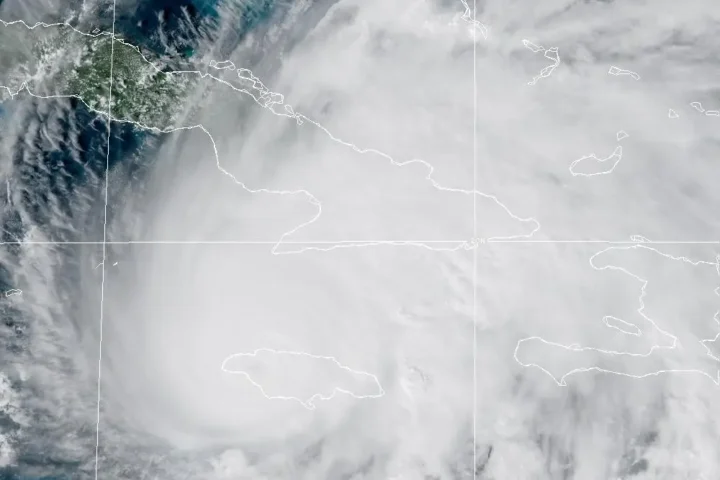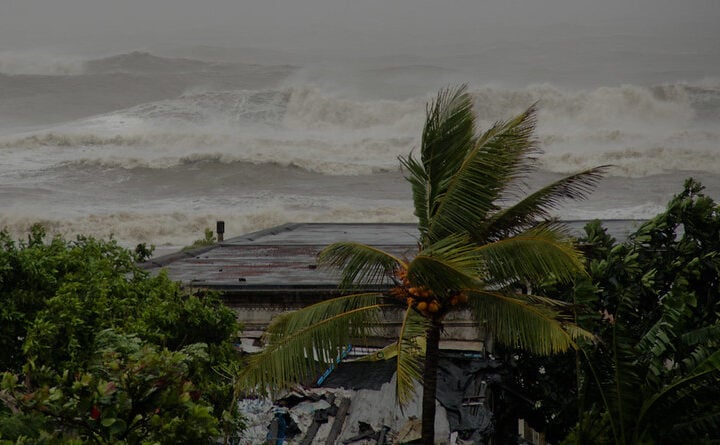Warm-Water Coral Reefs Pass Critical Tipping Point as Planet Hits 1.4°C Warming

Warm-water coral reefs are passing their thermal tipping point as global temperatures reach approximately 1.4°C above pre-industrial levels, according to the Global Tipping Points Report 2025 released by the University of Exeter and international partners. The report finds that widespread dieback is occurring across reefs that nearly one billion people and a quarter of all marine life depend upon.
Authored by 160 scientists from 87 institutions in 23 countries, the report identifies coral reefs as the first major Earth system to cross a catastrophic threshold. Since January 2023, the world has experienced the fourth and worst global coral bleaching event on record, with more than 80% of reefs affected by extreme ocean temperatures.
The tipping point occurs when global mean temperatures reach between 1.0°C and 1.5°C above pre-industrial levels, with a central estimate of 1.2°C. Current warming stands at about 1.4°C, placing coral reefs firmly within the danger zone. Unless global temperatures return to 1.2°C or preferably 1.0°C, extensive reefs as known today will be lost, though small refuges may survive with proper protection.
Understanding the Temperature Threshold
The report establishes that coral reefs reach their tipping point when global warming crosses 1.2°C, with current temperatures at 1.4°C placing reefs in irreversible decline. This interactive gauge shows where we stand relative to critical thresholds.
1.4°C
Industrial
Lower
Estimate
Upper
by ~2030
The Scale of Global Impact
Coral reefs support vast human populations and marine biodiversity, making their decline a crisis that extends far beyond ocean ecosystems to affect food security, livelihoods, and coastal protection worldwide.
The Caribbean region provides a stark example of reef collapse. Marine heatwaves, low diversity, and disease outbreaks have pushed Caribbean reefs towards collapse, with widespread mortality documented across the region. The Great Barrier Reef has experienced eight bleaching events, destroying approximately 50% of coral cover in recent decades.
Despite the dire situation, some coral reefs known as refugia—places where climate impacts are less pronounced—may survive with intensive conservation efforts. The Australian Institute of Marine Science notes that global temperature figures mask significant regional variability, and that a narrow window of opportunity remains to protect these critical refuge areas.
The report also documents 60% of coral reefs affected by bleaching during the fourth global event, with some regions experiencing complete ecosystem transformation from coral-dominated systems to algae-dominated landscapes.
Multiple Earth Systems at Critical Thresholds
While negative tipping points threaten planetary systems with irreversible damage, positive tipping points in clean technology and renewable energy offer pathways to rapid decarbonization and system transformation toward sustainability.
Negative Tipping Points
Positive Tipping Points
The report notes that the world is projected to overshoot the 1.5°C warming threshold around 2030 on current trajectories. Every fraction of a degree and every year spent above 1.5°C increases the risk of triggering additional catastrophic tipping points. Frontloaded mitigation pathways that minimize peak global temperature, duration of overshoot, and return time below 1.5°C are essential to avoiding further system collapses.
Dr. Manjana Milkoreit from the University of Oslo notes that current policy frameworks are inadequate for tipping point risks. Tipping points present distinct governance challenges compared to gradual climate change, requiring both governance innovations and reforms of existing institutions. Current international agreements are designed for gradual changes, not for abrupt, irreversible, and interconnected shifts that characterize tipping point transitions.
Timeline of Critical Events
Key moments in the progression from coral bleaching events to global tipping point recognition and policy response, showing the accelerating pace of both climate impacts and clean energy transitions.
Brazil, host of COP30, has potential to accelerate positive tipping points through production of green steel, green hydrogen, and green ammonia—technologies that could kickstart global industrial transitions away from fossil fuels. The COP30 presidency has launched a Global Mutirão (collective efforts) initiative to encourage coordinated climate action worldwide, recognizing that synchronized policy interventions can trigger cascading positive changes across interconnected systems.
Research indicates that ecosystem restoration can tip degraded systems back to health, and shifts toward sustainable consumption patterns can trigger tipping points in food and supply chains that end deforestation and ecosystem conversion. Small fragments of reef may be preserved through conservation action that minimizes other human stressors including overfishing, pollution, and physical damage from coastal development.
The report was financed by the Bezos Earth Fund and involved collaboration with Stockholm Resilience Centre and other international research partners. Dr. Laura Pereira served as equity and justice liaison, emphasizing that climate tipping points are deeply intertwined with social justice and human rights, particularly affecting vulnerable communities who contributed least to the climate crisis.
Access Full Research & Official Data
Explore the complete Global Tipping Points Report, official research statements, and real-time coral bleaching monitoring data from authoritative scientific institutions and government agencies
The report discussed the immediate need for accelerated emissions reductions and scaling up of sustainable carbon dioxide removal approaches to minimize temperature overshoot duration and magnitude. Expected impacts of tipping processes need consideration in risk assessments, adaptation policies, loss and damage mechanisms, and human rights litigation frameworks at national and international levels.
Regional risk assessments and governance frameworks are urgently needed to prepare for increasing loss of ecosystem services provided by reefs, including food provision, coastal protection, tourism revenue, and biodiversity maintenance. The report covered conservation strategies for reef refugia where climate impacts are less severe, emphasizing that protection of these areas remains paramount for potential future recovery scenarios once global temperatures stabilize and begin declining.
The Global Tipping Points Report was published with findings on how coordinated policy action at super-leverage points can unleash positive tipping cascades across interacting sectors including power generation, transportation, and heating systems. The report noted that polluting technologies are unlikely to return once replaced because cleaner alternatives become cheaper, more efficient, and better performing over time, creating self-reinforcing adoption cycles.















